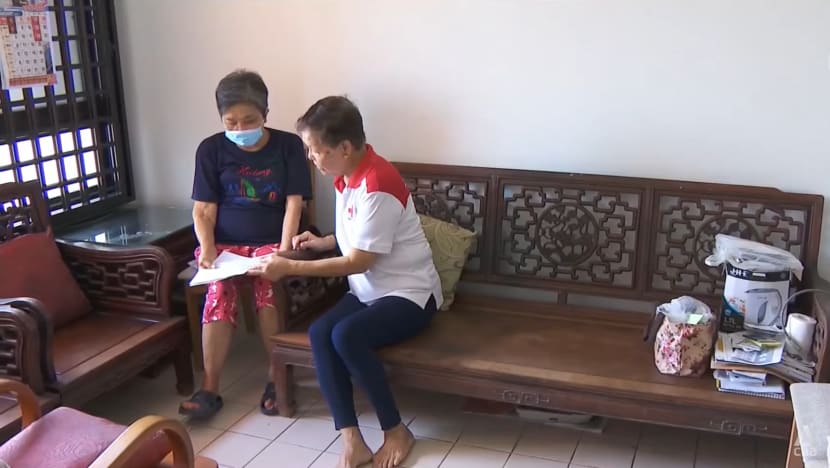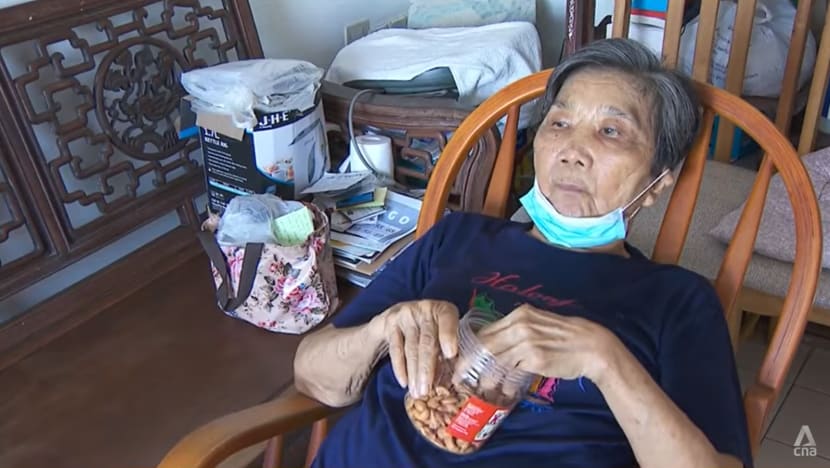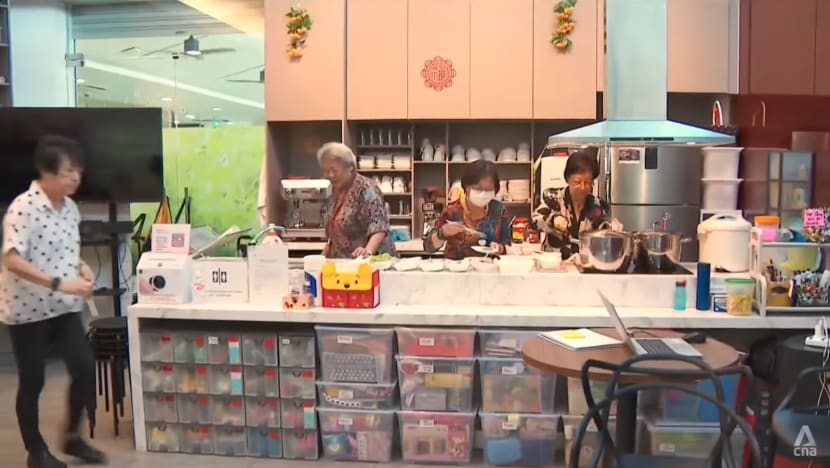More seniors stepping forward as caregivers to their peers, as Singapore approaches ‘super-aged’ status
Singapore is set to attain "super-aged" status in 2026, which is when the proportion of its population aged 65 and above hits the 21 per cent mark, according to the United Nations.

The Singapore Red Cross, which runs a befriending programme for elders called ElderAid, has seen around a 20 per cent increase over the last five years in seniors who volunteer.
SINGAPORE: Some community organisations in Singapore are seeing more seniors step up as volunteers, reaching out to those who live alone or acting as caregivers to other seniors here.
They are calling for greater support for this group, including government subsidies or mental health services to help in their caregiving roles.
With Singapore set to attain "super-aged" status in 2026, such organisations also told CNA that it will take more than just the efforts of volunteers to help seniors age in the community.
A country is labelled as “super-aged” by the United Nations when the proportion of its population aged 65 and above hits the 21 per cent mark.
By 2030, one in four Singapore citizens will be 65 and above.
BEFRIENDING ELDERS
The Singapore Red Cross runs a befriending programme for elders called ElderAid.
The initiative aims to engage seniors with the help of community volunteers, and also direct them to receiving the appropriate help when needed.
One such senior living alone, 83 year-old Jessie Leong, told CNA that she often has to find ways to occupy her time daily, but is hesitant to go out on her own after a recent spate of falls.
"I need some outings so my life won't be so boring. And then later on if I get weaker, because I'm 83, in two years' time, I might not be able to go to a hospital or clinic myself. So maybe I need some caregiver to go with me,” she said.

Her long-time friend Elizabeth Wong, 76, is a volunteer under the ElderAid programme.
She told CNA that she too enjoys participating in the programme as she is a senior herself.
"When I follow them out to the outings, I enjoy myself also. And because they are seniors (and) we are seniors, we have something in common. We know what we want, we know what our problems are and all these,” she shared.
MORE SENIORS VOLUNTEERING
The Singapore Red Cross has seen around a 20 per cent increase over the last five years in seniors who volunteer.
The Tsao Foundation, a non-profit organisation which focuses on active ageing, has also seen a similar increase.
Six in 10 of its volunteers at its Community for Successful Ageing (ComSA) project in Whampoa are seniors. They help to prepare meals for others and are involved in para-counselling.

Ms Lily Kow, a ComSA volunteer, told CNA: "We had one session on how to handle patients, or our clients on wheelchairs. And psychologically, you know what to say to them (and) what not to say to them as well."
As Singapore's population ages rapidly, more seniors are also set to become caregivers to their own aged parents or partners.
Support for the elderly is hence a big community effort moving forward, said Tsao Foundation chairperson Dr Mary Ann Tsao.
"If everyone has a mindset that if I have a neighbour or someone in my community that lives alone, and they have some frailty and may not have enough support, the community must feel that this is a granny I should have some responsibility for as well,” she said.
“And this is a mindset (which) used to be what we called a ‘kampung’ spirit.”
Dr Tsao added that policy changes have to also evolve to provide more support for these senior caregivers.
These include government subsidies for services and products related to senior care, and adequate mental health protection for caregivers, she said.
"There's some intergenerational solidarity, not just within a family, but also within the entire community with our neighbours or friends. And I think, for caregivers, (we) also need to build that network of supporters for them,” she said.
















